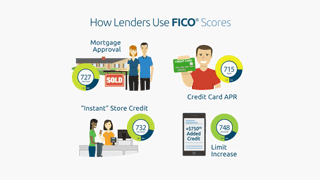Home loan payments are structured so that interest is paid off faster, with the bulk of home loan payments in the first half of your mortgage term approaching interest. As the loan amortizes, increasingly more of the mortgage payment goes towards the principal and less towards its interest. Check out on: Before you even request a home mortgage, you need to get preapproved. As soon as you sign, these become what you need to pay. With a fixed-rate home mortgage, your rate of interest stays the same throughout the life of the mortgage. (Home mortgages usually last for 15 or 30 years, and payments should be made month-to-month.) While this implies that your interest rate can never ever increase, it also indicates that it could be greater typically than an adjustable-rate home mortgage gradually.
Nevertheless, you usually get a certain variety of years at the start of the loan duration during which the interest rate is fixed. For example, if you have a 7/1 ARM, you get 7 years at the fixed rate after which the rate can be adjusted once per year. This means your regular monthly home loan payment could increase or down to represent modifications to the rate of interest.
If you're 62 or older and want money to settle your mortgage, supplement your earnings, or pay for health care costs you may think about a reverse home mortgage. It enables you to convert part of the equity in your home into cash without needing to offer your house or pay extra month-to-month costs.
A reverse home loan can utilize up the equity in your house, which indicates less possessions for you and your beneficiaries. If you do choose to look for one, evaluate the various types of reverse home mortgages, and contrast shop before you pick a specific business - how home mortgages work. Check out on to find out more about how reverse mortgages work, receiving a reverse home loan, getting the very best deal for you, and how to report any scams you might see.
The Definitive Guide for How Do House Mortgages Work
In a home mortgage, you get a loan in which the lender pays you. Reverse mortgages participate of the equity in your home and transform it into payments to you a sort of advance payment on your home equity. The cash you get generally is tax-free. Typically, you do not have to repay the cash for as long as you live in your home.
Often that suggests offering the house to get money to pay back the loan. There are three type of reverse mortgages: single purpose reverse mortgages provided by some state and local government firms, in addition to non-profits; exclusive reverse home mortgages personal loans; and federally-insured reverse mortgages, likewise referred to as House Equity Conversion Home Loans (HECMs).
You keep the title to your house. Instead of paying month-to-month mortgage payments, though, you get an advance on part of your home equity (how do 2nd mortgages work). The cash you get typically is not taxable, and it typically will not impact your Social Security or Medicare advantages. Discover more here When the last surviving debtor passes away, offers the home, or no longer lives in the house as a principal home, the loan has actually to be repaid.
Here are some things to consider about reverse home loans:. Reverse home loan lending institutions generally charge an origination fee and other closing costs, along with maintenance costs over the life of the mortgage. Some also charge mortgage insurance premiums (for federally-insured HECMs). As you get cash through your reverse mortgage, interest is included what happens when your timeshare is destroyed onto the balance you owe monthly.
The 45-Second Trick For How Do Bad Credit Mortgages Work
A lot of reverse home mortgages have variable rates, which are connected to a financial index and change with the market. Variable rate loans tend to give you more options on how you get your cash through the reverse mortgage. Some reverse home mortgages mostly HECMs use fixed rates, but they tend to require you to take your loan as a swelling sum at closing.
Interest on reverse home loans is not deductible on tax return till the loan is paid off, either partially or in full. In a reverse home mortgage, you keep the title to your home. That means you are accountable for real estate tax, insurance, energies, fuel, maintenance, and other expenditures. And, if you don't pay your residential or commercial property taxes, keep homeowner's insurance, or keep your house, the lending institution might require you to repay your loan.
As an outcome, your lender may need a "set-aside" total up to pay your taxes and insurance during the loan. The "set-aside" lowers the amount of funds you can get in payments. You are still responsible for keeping your house. With HECM loans, if you signed the loan documents and your partner didn't, in particular scenarios, your spouse may continue to live in the house even after you pass away if she or he pays taxes and insurance, and continues to keep the home.
Reverse mortgages can use up the equity in your house, which indicates fewer possessions for you and your successors. The majority of reverse home mortgages have something called a "non-recourse" stipulation. This means that you, or your estate, can't owe more than the value of your house when the loan ends up being due and the house is sold.
Facts About How Do Second Mortgages Work In Ontario Revealed
As you consider whether a reverse home mortgage is best for you, likewise think about which of the three kinds of reverse mortgage might finest suit your requirements. are the least pricey option. They're offered by some state and regional government companies, as well as non-profit companies, but they're not offered all over.

For instance, the lender might say the loan may be utilized only to pay for home repair work, improvements, or real estate tax. The majority of homeowners with low or moderate earnings can get approved for these loans. are personal loans that are backed by the business that establish them. If you own a higher-valued home, you may get a bigger loan advance from an exclusive reverse home mortgage.
are federally-insured reverse home mortgages and are backed by the U. S. Department of Real Estate and Urban Development (HUD). HECM loans can be used for any function. HECMs and exclusive reverse home loans might be more expensive than standard mortgage, and the in advance costs can be high. That is essential to consider, specifically if you plan to remain in your home https://hectorghxe358.de.tl/%3Ch1-style%3D-g-clear-d-both-g--id%3D-g-content_section_0-g-%3EWhy-Are-Reverse-Mortgages-A-Bad-Idea-for-Beginners%3C-s-h1%3E.htm for just a brief time or borrow a percentage.

In basic, the older you are, the more equity you have in your home, and the less you owe on it, the more cash you can get. Prior to making an application for a HECM, you must meet a counselor from an independent government-approved real estate counseling company. Some loan providers providing proprietary reverse home loans also need counseling.